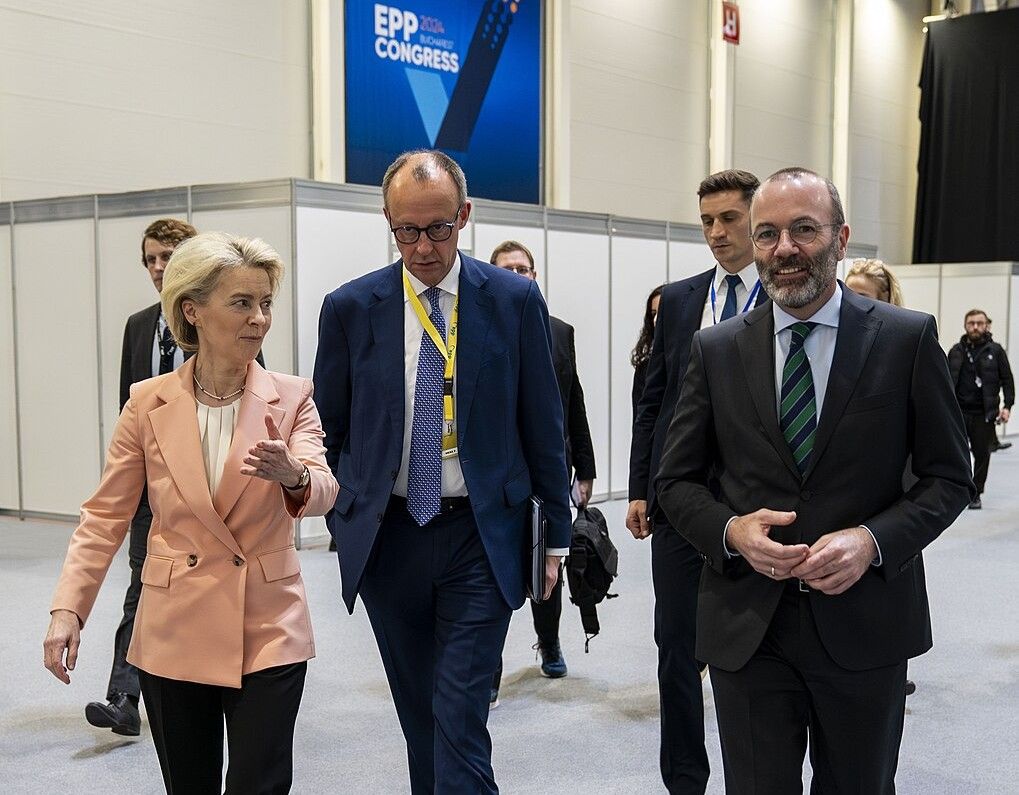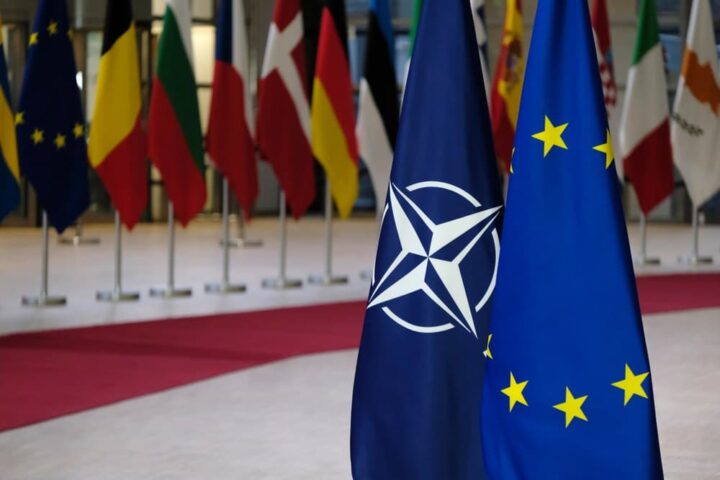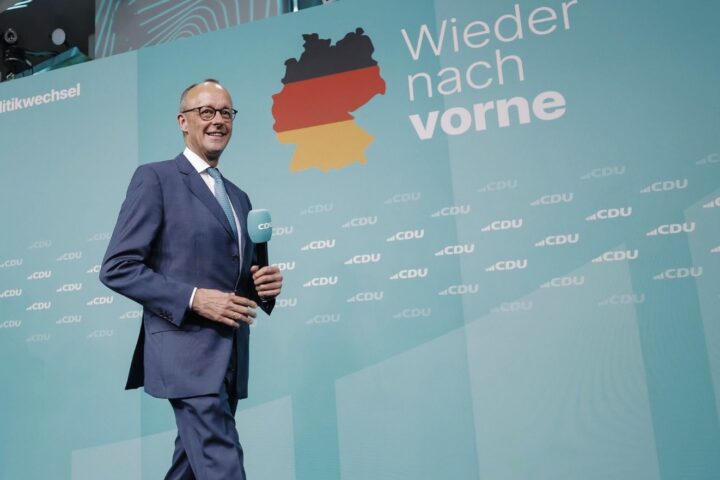A conservative win in Germany’s federal election on Sunday could trigger an explosive rally in the country’s stock market, particularly in small and mid-cap companies, with the potential to fuel a broader European equity surge, according to a bullish Nigel Green, CEO of financial advisory and asset management giant deVere Group.
“If front-runner Friedrich Merz (CDU/CSU) secures a coalition with the Social Democratic Party and potentially the Greens, investors expect a wave of economic reforms and a possible relaxation of the debt brake, setting the stage for a sustained bull run,” Green said.
The DAX Index is already near record highs, reflecting growing optimism.
Voters will elect 630 members of the Bundestag in a snap election called after the ruling coalition collapsed in November last year. An outright win of 316 seats is required to win the elections and form a government.
The deVere CEO explained that a shift in fiscal policy — allowing for more government investment — would be a game changer, particularly for sectors such as defense, infrastructure and real estate. Smaller companies, which are more sensitive to domestic policy changes, stand to benefit the most.
This shift could be the spark for a sustained period of outperformance in German equities.
“Investors are increasingly looking at Germany as the epicenter of the next European market boom,” said Green. “The election outcome could unlock a level of investment activity that we haven’t seen in years.”
This moment is not happening in isolation.
For the first time in nearly a decade, European stocks are outperforming their US counterparts. The Stoxx Europe 600 has surged 5.6% since Donald Trump returned to the White House, outpacing the S&P 500’s 2.5% gain and the Nasdaq Composite’s 2.2% rise.
Dramatic shift
“This dramatic shift in market sentiment signals a renewed investor appetite for European equities,” noted Green, adding that several critical factors are driving this momentum.
“Trump’s decision not to escalate tariffs against the EU has lifted a major overhang for European markets. At the same time, there is a renewed possibility of peace talks in Ukraine, easing geopolitical tensions that have weighed on investor confidence.
“These developments have removed substantial uncertainty, allowing the focus to shift to the region’s improving fundamentals.
“Adding further fuel to the rally is the European Central Bank’s commitment to interest rate cuts.
“Unlike the US Federal Reserve, which remains cautious about easing policy too aggressively, the ECB is decisively lowering rates to stimulate growth. This divergence in monetary policy is making European assets increasingly attractive, particularly as lower borrowing costs provide a tailwind for businesses and consumers.”
A key factor underpinning this rally is valuation. European stocks have long traded at a steep discount to their US counterparts, a gap that has become harder to justify given the improving macroeconomic landscape.
European companies are undervalued
Nigel Green said that, “even after recent gains, high-quality European companies remain significantly undervalued relative to their American peers. The widening recognition of this mispricing is prompting a wave of capital inflows, a trend that could accelerate as confidence builds.
“Another shift underway is a strategic rotation in global investment portfolios. For over a decade, US tech stocks have dominated the market, but higher interest rates and mounting regulatory scrutiny are prompting investors to reassess their positioning.
“As a result, capital is flowing into regions that offer compelling opportunities beyond the crowded tech trade. Europe, with its attractive valuations and central bank support, is becoming a key beneficiary.”
Some market observers argue that this European rally is temporary and that the US will inevitably regain its dominance once the Federal Reserve begins cutting rates. However, this perspective overlooks a fundamental change in market conditions.
Historically, European equities have been hindered by economic stagnation and political uncertainty. Today, those headwinds are diminishing, opening the door for potentially sustained outperformance.
“A decisive result in the German elections, paving the way for economic reform, could trigger a significant equity rally — one that extends beyond Germany and helps reshape Europe’s investment landscape,” Green concluded.










